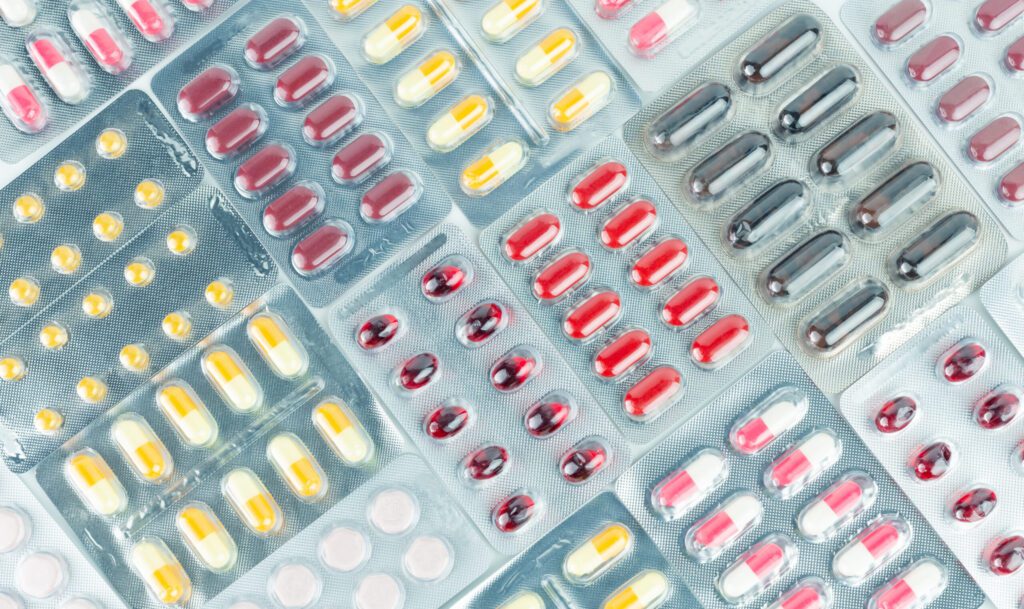July is Herbal/Prescription Interaction Awareness Month, and it’s time to talk about some common interactions between herbal supplements and prescriptions or over-the-counter medications. Most people will take at least one prescription medication in their lives, and some estimates maintain that about 70 percent of those age 60 and older take at least one herbal medication in the form of pills, oils, teas and more. Some interactions disrupt the effects of certain medications, making them ineffective or even more potent. Other interactions can be life-threatening. Take our pop quiz to educate yourself on the possible interactions between your over-the-counter or prescription medications and herbal supplements.
1.) Signs you are experiencing an interaction between your prescription medications and herbal supplements include which of the following?
- Rapid heartbeat
- Changes in blood pressure
- Feeling “off” or ill
- All of the above
2.) Which of the following common herbal supplements can increase bleeding risk for those on blood thinners/anticoagulants, like Clopidogrel, Warfarin or an aspirin regimen?
- Chamomile, cranberry, evening primrose
- Garlic, ginger, gingko biloba, ginseng, and green tea
- Saw palmetto
- All of the above
3.) Fish oil, commonly taken for the omega-3s that fight inflammation and may help prevent heart disease and reduce declines in brain function, can cause problematic interactions with which of the following medications?
- Birth control pills
- Blood thinners and hypertension medication
- Xenical (treats obesity)
- All of the above
4.) If you are taking chemotherapy agents, which herbal supplement should you avoid because it could negatively interact with the medications?
- Echinacea
- Gingko Biloba
- Chamomile
- Turmeric
5.) True or false? Coenzyme Q10, an antioxidant people take to help high blood pressure, heart issues, and more, can decrease the effectiveness of the blood thinner/ anticoagulant Warfarin (Jantoven) and/or decrease your blood pressure if you also take a calcium channel blocker, like diltiazem (Cardizem, Tiazac, others).
6.) Which of the following herbal supplements are strongly recommended to be avoided in combination with most over-the-counter and prescription medications because there are so many negative interactions?
- Ginseng and Valerian
- Goldenseal and St. John’s wort
- Cranberry and saw palmetto
- Garlic and curcumin
7.) Which of the following herbal supplements has/have been shown to cause interactions with antidepressant and antipsychotic medications?
- Curcumin
- Echinacea
- St. John’s wort
- Ginseng (Asian)
- All of the above
8.) Danshen, or red sage, has which of the following negative interactions with prescription medications?
- It significantly increases the bleeding risk for those on a blood thinner/ anticoagulant or aspirin.
- It raises the risk of dangerously low blood pressure for those taking a calcium channel blocker.
- It puts those taking Digoxin (Lanoxin)—used to treat a variety of heart conditions—at risk of irregular heartbeat (arrhythmia).
- All of the above
9.) What should you do if you think you are experiencing a negative interaction between your herbal supplement and your prescription or over-the-counter medications?
- Stop taking the herbal supplement
- Discuss it with your doctor
- Go to the ER if you think your interaction is serious or life-threatening
- All of the above
compiled by ERIKA ALDRICH / Resources: Information provided by the American Academy of Family Physicians, the Mayo Clinic, and ATRIO Health Plans.
ANSWERS
- D. All of the above. Most medication/herbal supplement interactions affect blood pressure or the heart, but interactions could present with many different side effects.
- D. All of the above. Many herbal supplements have negative interactions with blood thinners/ anticoagulants and aspirin regimens.
- D. All of the above. Fish oil may seem safe because it comes from a natural source, but it can interact with many prescription medications.
- A. Echinacea. Echinacea, taken for a boost to the immune system, can negatively interact with some chemotherapy agents.
- True. Coenzyme Q10 can decrease the effectiveness of the many blood thinners/ anticoagulants and/or lower blood pressure.
- B. Goldenseal and St. John’s wort. Because there are so many interactions with prescription and over-the-counter medications, it is recommended that neither Goldenseal nor St. John’s wort be taken with any other medication, either prescription or over-the-counter medications.
- E. All of the above. Those taking antidepressant or antipsychotic medications should always check with their doctor and pharmacist before also taking an herbal supplement.
- D. All of the above. Danshen, or red sage, has negative interactions with many prescription medications.
- D. All of the above. Stop taking the herbal supplement, contact your doctor, and go to an emergency room for serious complications if you think your herbal supplement is interacting negatively with your medications.
